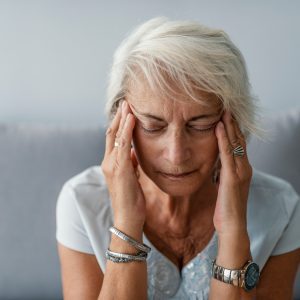Mental Health Days: How Are You Taking Care Of Yourself?

Mental Health Days: How Are You Taking Care Of Yourself?
April 29, 2020
Raise your hand if the past several weeks have left you feeling anxious, uncertain, and perhaps even outright scared. With good reason, you may be experiencing emotions and thoughts you’ve never felt before, and the uncertainty of the timing and outcome of this pandemic may only heighten the stress and anxiety. As the CDC has made clear, you may be experiencing these symptoms in all sorts of ways: sleeping or eating patterns may be off; already existing chronic health problems may have worsened, and you may be reaching for unhealthy ways to make yourself feel better (or numb) through alcohol or drug use. In addition, the stress of quarantine may be leading to anger, confusion, boredom, and other sources of psychological distress. And you’re definitely not alone. A recent Kaiser Family Foundation survey found that 45% of adults in the US report their mental health has been negatively affected by worry and stress over the coronavirus. The question is, can you deal with these issues on your own, or should you seek out professional help?
There are innumerable suggestions from advocacy organizations and helpful resources to try to guide you through this on your own, or with remote supports. For example, among the sources of help if you’re at home quarantining is The HelpGuide list of recommended steps, which include staying informed while limiting your news exposure, focusing on what you can control in your life right now, helping others as a way to help yourself and stopping yourself from the destructive “what if” thinking that can spiral you down a deep rabbit hole. They also have useful links and resources for you to reference. And Mental Health America has an exhaustive list of community and professional organizations that address a range of mental health concerns. They provide links to immediate response resources, valuable webinars and workshops, connections to support groups, and special links for caregivers and older adults, all focused on the direct damage caused by COVID-19. The American Psychological Association also has an extensive list of COVID-related links and resources to help you with grieving, mourning, and managing all aspects of your mental health at this time. Finally, you may want to take a look at the Medium post by Dr. Jan Resnick, a psychotherapist, entitled, “Instead of Freaking Out, Pick Up A Broom.” The gist of his advice? Go all in and focus on immediate tasks at hand. As he states, “Focus on what you are doing, immerse yourself, engage with the task, and yes, breathe deeply as you go. Keep breathing, as long as there is breath.” He also provides some guidance about spiritual growth during this time, though not necessarily specific to a particular spiritual practice.
For some video guidance, take a look at the pre-recorded videos from the COVID-19 Mental Health Forum Series of the Harvard T.H. Chan School of Public Health. Or take a look at the responses from Dr. Sue Varma of NYU who answered viewer inquiries on a recent edition of the PBS NewsHour.
Finally, if you have tried to address mental health issues on your own, and think outside support may be the next step, a recent Washington Post article provides significant help in sorting through what kind of help might be best, how to find it in the midst of quarantining and how to afford it, especially without extra resources or health insurance. So put down your worry beads and take a look here.







